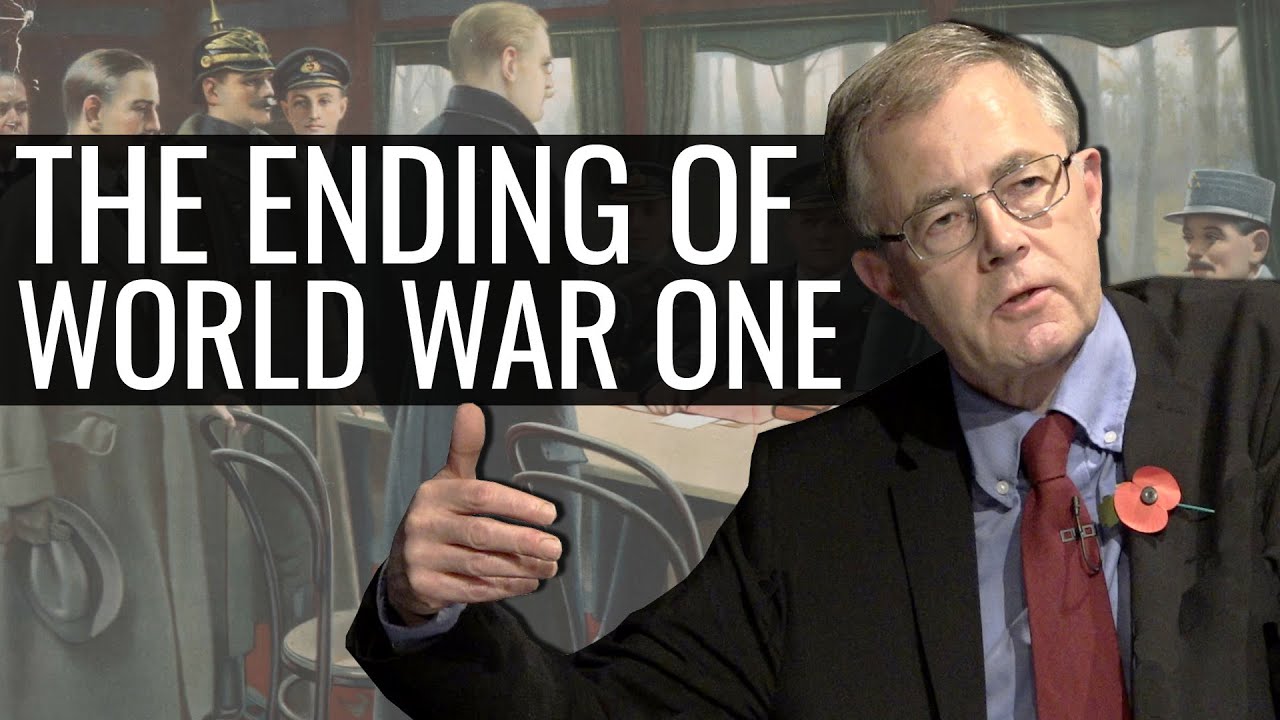The causes and start of World War I is dauntingly complex and historians argue to this day which were the precipitating factors. But the end, in the armistice of 1918-11-11, is also puzzling. Why did Germany sue for peace while still occupying large swaths of enemy territory? Why did the Allies offer an armistice when the tide appeared to have shifted in their favour and large numbers of U.S. troops were about to enter the battle on their side? Why did the Russian separate peace with Germany not allow the latter to shift forces to the Western Front and regain the initiative? How did the domestic politics and economic situation of all the combatants contribute to their desire to put an end to the fighting? Could the war have been stopped much earlier, and why not?
4 years of total war equals exhaustion. WWII and the American Civil War were approximately 4 years.
Hmmm…is this why the Founders created the 4 year term for POTUS? (Probably just twice a Representative’s term.)
While the U.S. only entered World War II after the attack on Pearl Harbor in December 1941, for the Britain and continental Europe the war started in the first days of September 1939 after the German invasion of Poland on 1939-09-01 and the declarations of war against Germany by Britain and France two days later. Thus, in Europe, the war is considered to have lasted 6 years, not 4. In France, the war is often referred to as “39–45”, which avoids the complexity in France’s status over those years.
As to how it began, I recommend Tuchman’s “The Proud Tower”. It made no sense for the European nations to go to war. Just like today, many books were written explaining why it could t happen. Chief among the reasons: economic co-dependency. (Just like today).
But it happened anyway. People LIKE war! That’s why we keep on doing it. Sheesh just look at the Ukraine war. Why on Earth should the US be involved?
As to why WWI ended: yuh, that is weird. It was going great fir Germany on the eastern Front, which was mostly what the German people cared about, the heritage of the Teutonic Knights. And there was no devastation in Germany proper, so…people were,p puzzled and resentful. Or so I’ve read.
The 20th century was reliably unpleasant. And we’re almost a quarter through the new one, but things don’t seem to have improved much.
That was the start of the often-forgotten period known as the “Phony War”. England & France had declared war on Germany, but then did precious little to help Poland as Germany & the USSR invaded that unfortunate country. It was nearly 9 months later before Germany responded with its lightning invasion & occupation of France in May 1940. Arguably, total war did not come to England until the start of the aerial Battle of Britain in July 1940, well over a year after England’s declaration of war. Even more arguably, total war did not come to Germany until the invasion of the USSR in mid-1941.
There is thus some support for the assertion of 4 years (+/-) of total war (versus a peer) as being about the limit of what an industrial economy can stand. On the other hand, versus a non-peer, the US fought in Afghanistan for about 20 years. And the history of pre-industrial Europe has such instances as the Thirty Years War in the 1600s and the Hundred Years War starting in the 1300s.
In today’s thermonuclear age, the likelihood is that a real war between peers (rather than the current proxy war) would last only days – probably less than the 1967 Six Days War between Israel and several Arab states. But would be much more destructive than World Wars I and II combined.
Yes and no. Certainly, in WWI Germany was not subject to bombing of its cities. But their economy was very severely affected by the conscription of so many working-age males (and even schoolboys) into the military. Agriculture was badly affected by the lack of labor.
Can’t remember where I read it – but some author reported that German troops transferred from the Eastern front to the Western front after the victory against Russia were shocked by the poor state of Germany as they passed through it. Very bad for troop morale!
I recall reading about the casualty rates difference between Americans and Vietkong being used as justification for continuing the conflict. I hear the same justification being used for the attrition warfare in Ukraine. I wonder how they thought about this in WW1?
